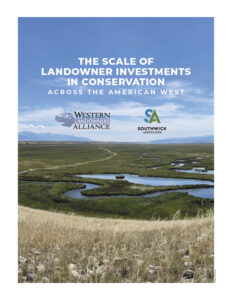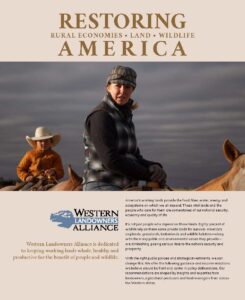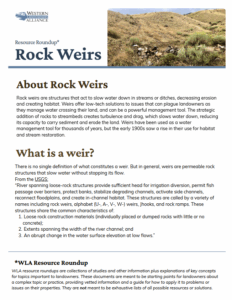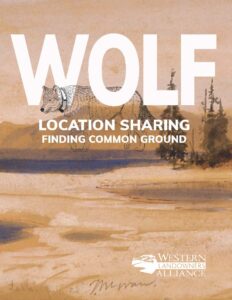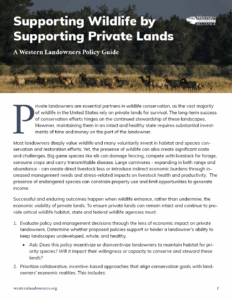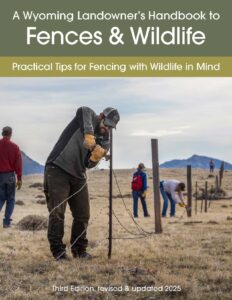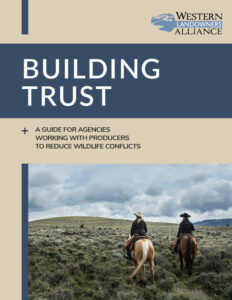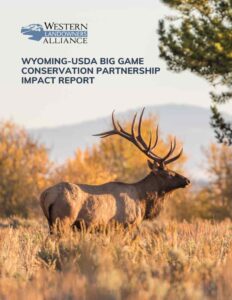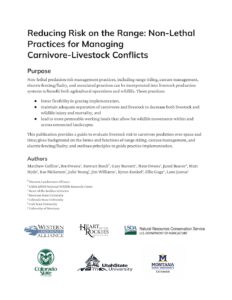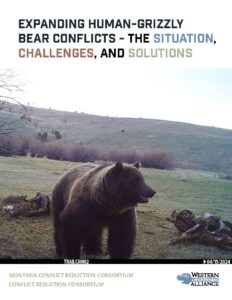PUBLICATION
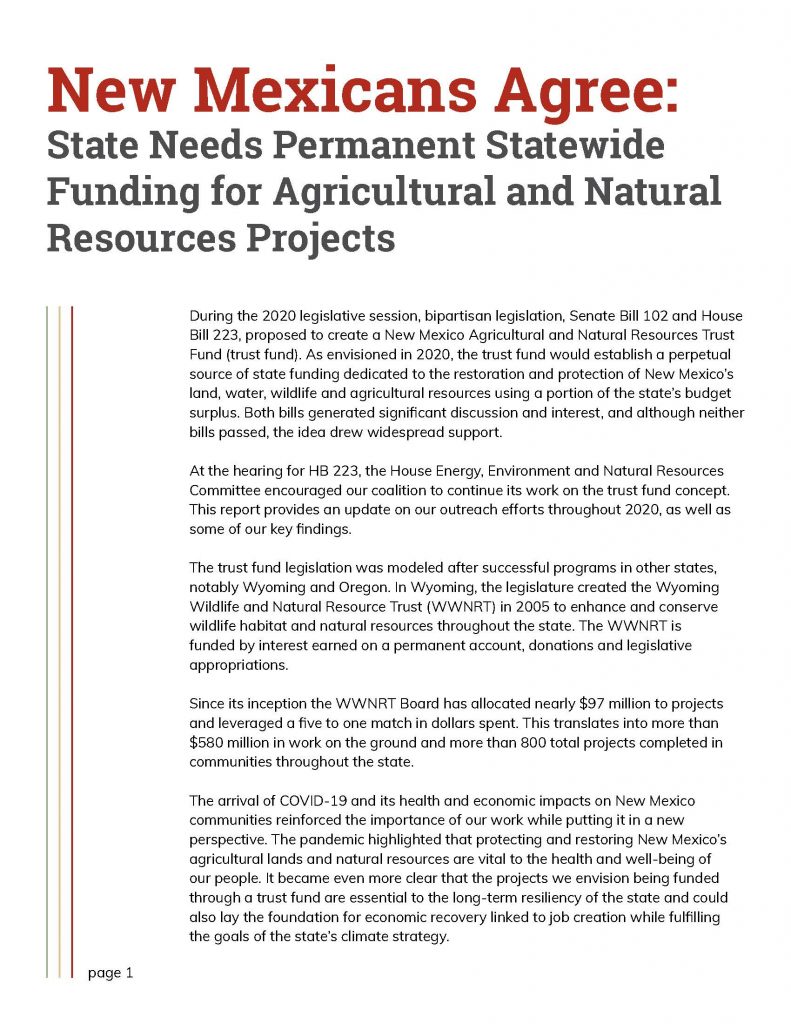
The New Mexico Agricultural and Natural Resources Trust Fund Steering Committee includes:
Audubon Southwest, Defenders of Wildlife, Indian Nations Conservation Alliance, New Mexico Acequia Association, New Mexico Acequia Commission, New Mexico Association of Conservation Districts, New Mexico Land Conservancy, Nuestra Tierra, Rocky Mountain Farmers Union, Trout Unlimited, and Western Landowners Alliance
Staff contact
Publication Date
New Mexicans Agree
State needs permanent statewide funding for agricultural and natural resources projects
In this open letter to New Mexico’s political leadership, WLA and our partners on the New Mexico Agricultural and Natural Resources Trust Fund Steering Committee present the results of a year-long series of listening sessions and stakeholder interviews in 2020 to shape the New Mexico Agricultural and Natural Resources Trust Fund.
Amongst stakeholders we found the following aspects of a trust fund were areas of shared agreement:
- Need for matching state funds to better leverage federal and private dollars to advance conservation objectives across New Mexico
- Importance of increased funding for habitat restoration projects
- Maintaining and improving agriculture viability across New Mexico
- Voluntary agreements to conserve open space for wildlife habitat and agriculture
- Establishing partnerships to advance natural resource stewardship
- Maintaining and improving wildlife habitat and wildlife corridors
- Effectively removing invasive species
- Restoring forest and watershed health
- Restoring the health and productivity of grasslands and rangelands
- Investing in projects to benefit New Mexico’s Acequia communities
- Increased funding for natural resource projects on tribal lands
- Improving water quality and quantity through ecological means
- Restoring aquatic resources, including rivers, riparian areas, wetlands and cienegas
- Ensuring state investments are equitably distributed and address the needs of all of New Mexico’s diverse communities
- Recognizing and moving equity in natural resources forward
The Western Landowners Alliance and the authors reserve all copyrights on publications posted on our website unless otherwise noted. Please contact us for reprints or for special use requests.
Browse our Library
Never miss a new publication or resource from Western Landowners Alliance.
It's important to be prepared for what's in front of you. Western Landowners Alliance produces vital resources from and for landowners on topics as critical and varied as public policy, economics, and stewardship best practices. Subscribe to our email list to ensure you are always in the loop.
GET UPDATES DELIVERED TO YOUR INBOX
* We don’t share your personal info with anyone. Check out our Privacy Policy for more information.
©2026 Western Landowners Alliance • PO BOX 27798, Denver, CO 80227 • 505.466.1495
Western Landowners Alliance is a 501 (c)(3) non-profit recognized by the IRS.
Tax ID: 46-1346488
